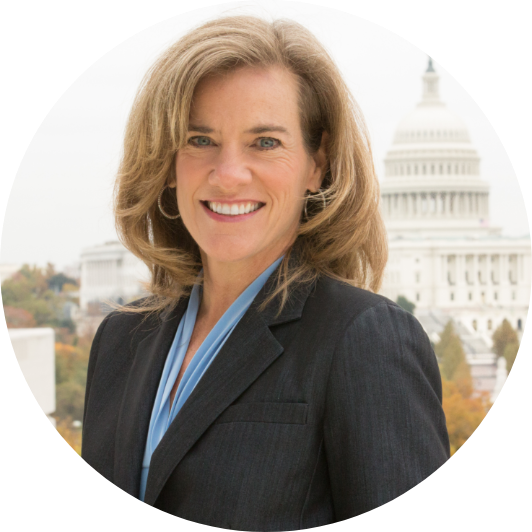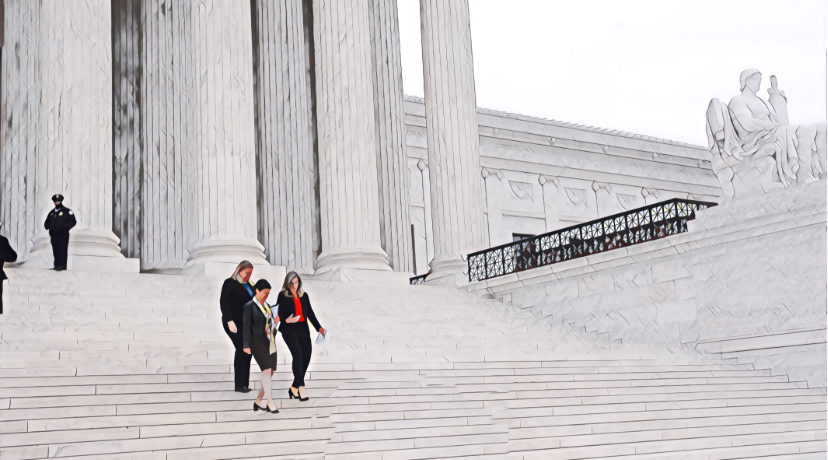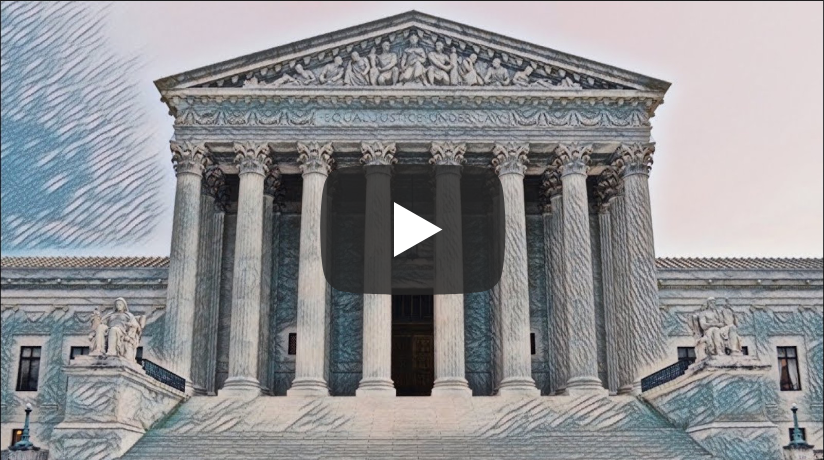BJC’s review of Judge Ketanji Brown Jackson’s record
If confirmed, Judge Jackson, like her predecessor, will have opportunities to shape church-state law. BJC urges the Senate to engage Judge Jackson in thoughtful ways about her understanding and approach to the fundamental and foundational right of religious liberty.

As the Senate Judiciary Committee prepares for hearings on the nomination of a new Supreme Court justice, BJC has been reviewing the record of Judge Ketanji Brown Jackson, with an eye toward the future of the Court and the legal protections for religious liberty. Most of what we know comes from answers she provided in questionnaires to the Senate, both for this nomination and previous ones. While those questionnaires provide little basis for discerning specific views on contested areas of church-state law, her record and public statements align with the pragmatic judicial approach of the justice she would replace. We expect she will bring careful and respectful consideration to cases before the Court at a time when stability and consensus-building are needed.
Background
President Joe Biden’s nomination of D.C. Circuit Judge Ketanji Brown Jackson to the U.S. Supreme Court fulfills a campaign promise and provides a tremendous opportunity for the Court and the country. If confirmed, Judge Jackson will be the first Black woman to serve as a U.S. Supreme Court justice, the culmination of a life and career spent working in law. Her credentials are stellar and well-known by now.
A short summary of her experience demonstrates that she is highly qualified. Jackson grew up in Miami, where she attended public schools, excelled in debate, and set her sights on a legal career. She graduated from Harvard University with honors, both as an undergraduate and law student, before obtaining three clerkships, including one for U.S. Supreme Court Associate Justice Stephen Breyer. Since 2013, Jackson has served in the federal judiciary, first as a U.S. District Court Judge for the District of Columbia for seven years, and then as a Circuit Court Judge for the U.S. Circuit Court of Appeals for the D.C. Circuit. Her legal experience prior to being a judge includes work in private practice and in the public interest. Particularly noteworthy is her experience as a public defender, which is rare among judges. If confirmed, Jackson would be the first public defender to serve on the Supreme Court.
Jackson’s remarks at the White House when President Biden announced her nomination and introduced her provided a small glimpse into her personality beyond her credentials. She began by acknowledging her faith and her family. Her parents were public school teachers, having attended segregated primary schools and then attending historically Black colleges and universities. She spoke about having family members in law enforcement and a relative serving time in the criminal justice system. Jackson gave an eloquent tribute to Justice Breyer for his influence noting that he exemplified “the highest level of skill and integrity while also being guided by civility, grace, pragmatism, and generosity of spirit.” Statements from colleagues and her former clerks indicate that she has similar qualities.
As a nominee of a president of the same party that nominated the justice she would replace, it is not expected that Jackson will change the balance of the Court from a political or ideological perspective. Yet, all new justices change the Court in some way, bringing their experiences to bear and forming working relationships among the other justices. We expect that the hearings on Jackson’s nomination, like the most recent ones for other nominees, will reveal little about her views but will offer an opportunity to demonstrate general understanding of a broad range of constitutional matters.
Religion and religious liberty at the Supreme Court
Judge Jackson has not indicated her religious affiliation, though her public statements and those of her friends have said her faith is very important to her. She has some experience with religious institutions and the issues they face, having once served on the board of a Christian K-12 school. When questioned about the statement of faith on the school’s website, she did not comment on the content and said that she primarily provided fundraising assistance. She also cited the Constitution’s ban on any religious test for officeholders and noted that judges are required to set aside all personal beliefs, including religious beliefs, when ruling in cases.
A review of her cases reveals only a couple that involve religion claims, such as religious discrimination in the workplace and the rules of standing that are necessary to bring religious liberty claims. In answers to written questions from senators following her last confirmation hearings, she repeatedly noted that “the Free Exercise Clause is a fundamental and foundational constitutional right” and demonstrated familiarity with the major sources of religious liberty law and recent developments. She wrote that she has “not expressed any personal views of the scope and contours of the fundamental right to religious liberty” and that it would not be appropriate to do so. She also stated that the Supreme Court “is working through the doctrine,” noting specific recent decisions addressing “what it means to treat religion differently.” These references indicate an understanding that there is a shift occurring on the Court as it re-evaluates the scope of religious liberty in a variety of contexts, including in cases addressing the application of employment laws to religious institutions, government funding of religious institutions, and the application of public health regulations to religious gatherings.
If confirmed, Judge Jackson, like her predecessor, will have opportunities to shape church-state law. While Justice Breyer never wrote a majority opinion in a religious liberty case, he was active in oral arguments and wrote many concurring and dissenting opinions that influenced decisions. His most notable contribution to church-state jurisprudence – so far – is probably as the swing vote in the two Ten Commandments cases in 2005, where the Court upheld one display on the state capitol grounds in Texas but struck down displays in county courthouses in Kentucky, finding the Kentucky displays unconstitutional under the Establishment Clause. In the Texas case, Justice Breyer noted the difficulty of finding tests that capture the meaning of the religion clauses and the reality of borderline cases. In this area of the law, and in such cases, he saw “no test-related substitute for the exercise of legal judgment.” His concurring opinion explains in detail that such judgment takes into account the context and consequences of a dispute measured against faithful adherence to the underlying purposes of the constitutional provisions at issue. As the Court continues to reevaluate standards for deciding religious liberty cases, it is essential that the next justice demonstrates similar commitment to the purposes of the religion clauses. BJC urges the Senate to engage Judge Jackson in thoughtful ways about her understanding and approach to the fundamental and foundational right of religious liberty.
 Holly Hollman is general counsel and associate executive director of BJC. She also serves as an adjunct professor of law at the Georgetown University Law Center, where she co-teaches the Church-State Law Seminar.
Holly Hollman is general counsel and associate executive director of BJC. She also serves as an adjunct professor of law at the Georgetown University Law Center, where she co-teaches the Church-State Law Seminar.
This column also appears in the spring 2022 edition of Report from the Capital. You can download it as a PDF or read a digital flip-through edition.






